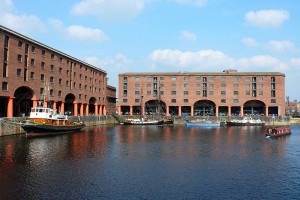Earlier this month, I had the pleasure of attending the annual UK Environmental Law Association (UKELA) conference in Liverpool. The theme was “Water, Water everywhere” but - much to the delight of the delegates - not a drop of rain fell the entire weekend.
Not so lucky were the intrepid group of UKELA ‘recyclists’ who cycled 180km to the conference…Caught in a heavy downpour they were forced to take refuge in a field shelter! Nevertheless, they ploughed on gallantly and raised over £1300 towards the upkeep of Law and Your Environment.
For the usual suspects, there was an atmosphere of contentedness as friends and colleagues tracked each other down for their annual catch-up. For those new to the conference, there was an enthusiastic vibe as they met new people and anticipated the events ahead.
The plenaries
Any doubts as to whether a water-themed conference would be of interest to all members were quickly dispelled. The seminars flowed together seamlessly (forgive the pun), reminding us of the pervasiveness of water and its impact on other areas of legal practice, such as flooding, energy and nature conservation.
For me, the most valuable presentation was from Dr Nicola Notaro, Deputy Head of Water, DG Environment. He took a practical look at the Water Framework Directive, and gave us a run down on the recent decision of the Court of Justice in the Weser Case. For a summary of his presentation, see the separate blog piece: Defining “Deterioration” – Water; Weser; and the WFD.
For many, the most memorable presentation was Lynda Warren’s quirky, engaging and impassioned ‘rant’, as she called it, on marine conservation and marine protected areas. A refreshingly active and visual session highlighting the challenges of protecting the habitat of ubiquitous species, such as the harbour porpoise whose range covers much of the European continental shelf, and expressing frustration around efforts to protect less attractive, but environmentally critical species. Importantly, she reminded us of the significance and diversity of the marine environment, which for many, is nothing more than a vast expanse of water.
A cryptic conclusion
On Saturday evening, the formal part of the conference concluded with the annual Gala Dinner. This year it was held in the world-renowned Lutyens Crypt - part of the grandest building never built…
Before descending to the spectacularly decorated venue, delegates received an exclusive tour of the Cathedral, learning about its fascinating history and Sir Edwin Lutyens’ original design for the building.
But, without a doubt, the highlight of the evening was Guest Speaker, Bishop James Jones, who gave a captivating talk about his environmental pursuits, and in particular how he visited local schools to see how much the future of the environment concerned them. The results were striking.
We were left stirred and reinvigorated for another year pursuing our environmental law careers in an ever changing market.
Download this FREE CHECKLIST: Table of Key Water Quality Directives
The Water Framework Directive 2000/60/ EC (WFD) sets the legal framework for protecting inland surface waters, transitional waters, coastal waters and groundwater in the European Union. It provides an integrated river basin system, which is underpinned by the use of environmental standards to assess water quality and identify the improvements required to bring waters back into a good condition.
The Water Environment (Water Framework Directive) (England and Wales) Regulations 2003, SI 2003/3242 implement the main requirements of the WFD in England and Wales, including the introduction of river basin districts, river basin management plans and a programme of measures to achieve environmental objectives.
This table provides a brief summary of the key European Directives which relate to water quality, including the WFD.
Source: LexisNexis Purpose Built
Learning and Leisure in Liverpool – UKELA 2015





